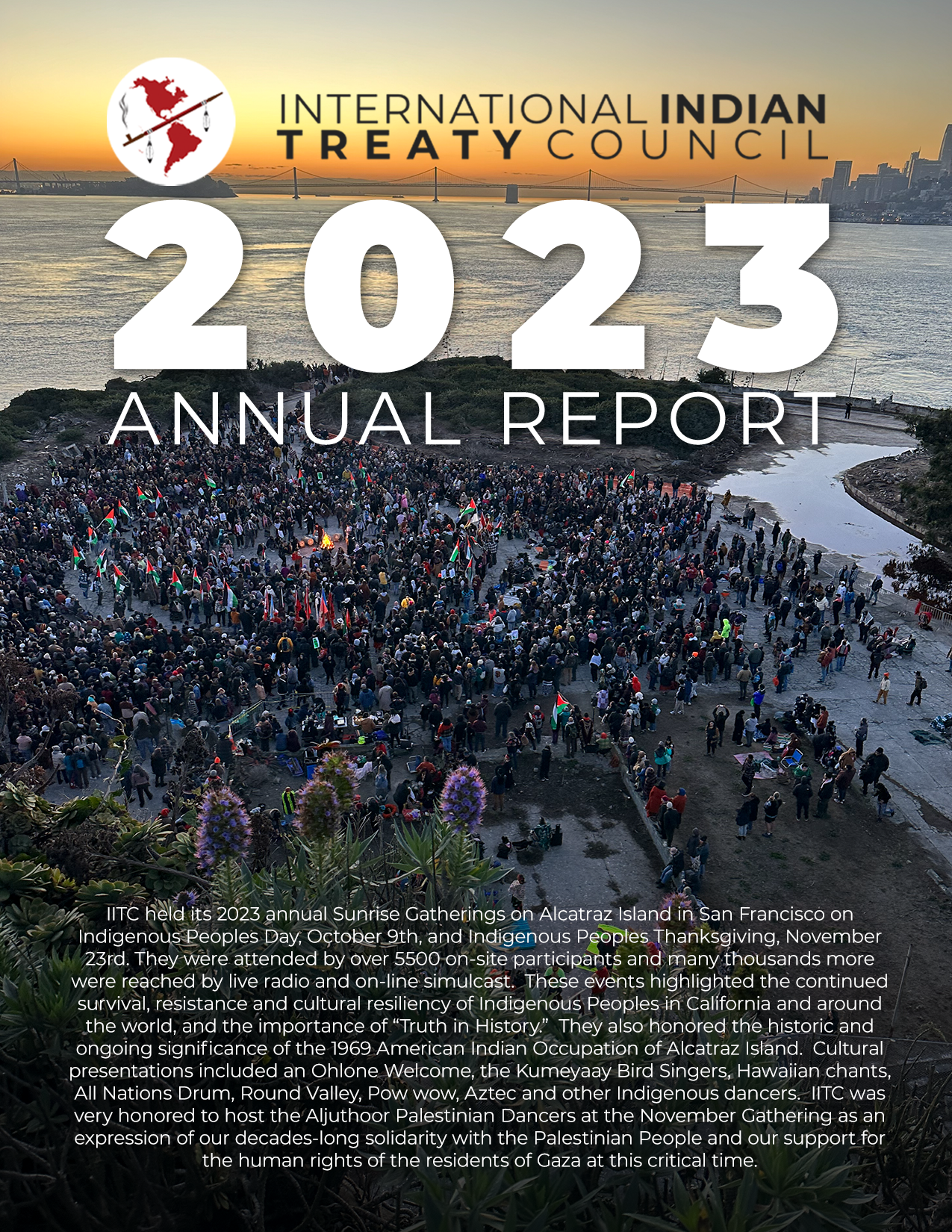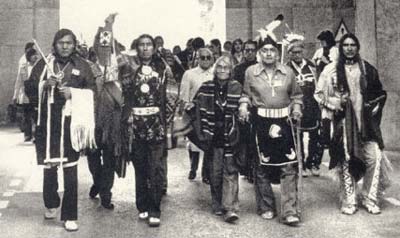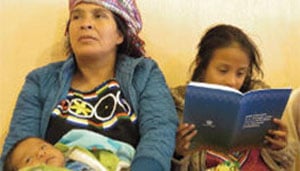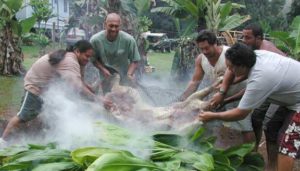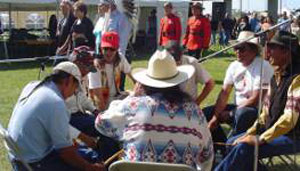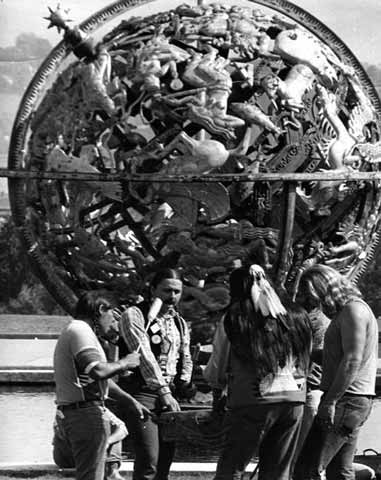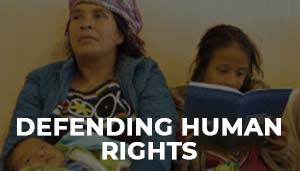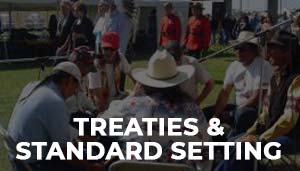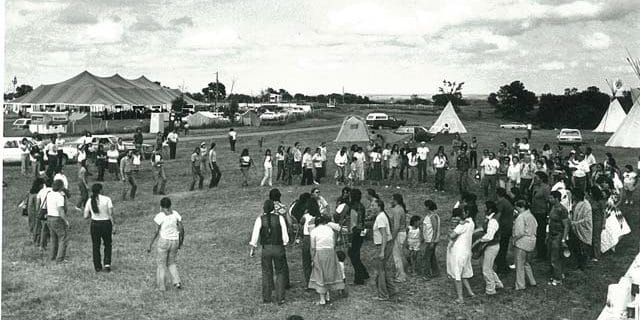February 2, 2022
The Honorable Joe Biden
President of the United States
1600 Pennsylvania Ave NW
Washington, DC 20500
Respectful Greetings,
The International Indian Treaty Council (IITC) has learned that Leonard Peltier has tested positive for COVID-19 (Jan. 28, 2022), and in light of this terrible news, we are writing you today to renew our urgent request to grant our colleague and relative executive clemency and additionally request for compassionate release and COVID-19 release. Many other human rights organizations, Tribal Nations, and Tribal organizations, including the National Congress of American Indians have made the same request. Mr. Peltier is Anishinaabe, an enrolled member of the Turtle Mountain Band of Chippewa Indians, and an Indigenous Human Rights Defender.
The IITC is extremely concerned with Mr. Peltier’s health condition and fear that it will worsen drastically, and even result in his death due to COVID-19. Mr. Peltier has several compounding health conditions, including kidney disease, diabetes, and high blood pressure. COVID-19 is a deadly virus in and of itself and the likelihood of long-COVID disabilities or death increase drastically with pre-existing conditions. A person that contracts COVID-19 with pre-existing kidney disease is twice as likely to succumb to the virus. A person that is over the age of 65 (Mr. Peltier is 77) is 80 times more likely to succumb to the virus. Diabetes and high blood pressure also drastically increase the probability that severe COVID symptoms will develop. Moreover, these statistics come from hospitals accessible to the public – prison hospitals are notoriously underfunded, understaffed, and pose dangers to people in prison.
The IITC, and others, have been concerned about Mr. Peltier’s health for years and have requested redress on Mr. Peltier’s behalf, and have increased coordinated efforts due to the deadly COVID-19 pandemic.
The IITC affirms the widely held view that Mr. Peltier’s conviction was an egregious miscarriage of justice and, among other things, a violation of his due process rights. He was sentenced in 1977 to two consecutive life terms in connection with the June 26, 1975, shooting and deaths of two agents of the Federal Bureau of Investigation (FBI) on the Pine Ridge Reservation, SD, after a trial which has been widely criticized over the blatant FBI and U.S. General Attorney misconduct. The incident occurred during a time of considerable violence and extreme tension on Pine Ridge, and members of the American Indian Movement such as Mr. Peltier were targeted for persecution by federal law enforcement. We are certain that had he gone to trial with his co-defendants, who were acquitted on grounds of self-defense; had he been allowed to present all of the evidence in his defense, including instances of FBI intimidation of witnesses and suborned perjury; had a racist juror exposed during trial not been allowed to remain on the panel; and had critical ballistics evidence reflecting his innocence not been withheld from defense counsel and the jury, Leonard Peltier would be a free man today.
As a signatory to the International Convention on the Elimination of All Forms of Racial Discrimination (ICERD), the United States of America must undertake to prohibit and eliminate racial discrimination in all its forms and to guarantee the right of everyone, including Indigenous Peoples, to equality before the law. Prohibitions against discrimination are also contained in the United Nations (UN) Declaration on the Rights of Indigenous Peoples and the International Covenant on Civil and Political Rights (ICCPR).
In paragraph 91 of the report on his official country visit to the United States issued on August 30, 2012, United Nations Special Rapporteur on the Rights of Indigenous Peoples, Professor James Anaya, made a similar recommendation:
“Other measures of reconciliation should include efforts to identify and heal particular sources of open wounds. And hence, for example, promised reparations should be provided to the descendants of the Sands Creek massacre, and new or renewed consideration should be given to clemency for Leonard Peltier.”
Leonard Peltier is now 77 years old and a great-grandfather. He has fulfilled his federal sentencing guideline requirements but has been repeatedly denied parole. Leonard Peltier now has tested positive for COVID-19 and his very life is at stake.
We have seen and felt the commitment the Biden Administration has shown to Indian Country and Indigenous communities. We need to see that same commitment to repair the relationship between the U.S. and Indigenous Peoples of this land in Mr. Peltier’s case. This is an open wound for us all and it is clear now that the Biden Administration is the last presidential administration that can remedy this situation. The time to provide remedy in Leonard Peltier’s case is dwindling. We request that you remedy this wound that reverberates in Indian Country before it is too late and grant executive clemency, COVID-19 release, or compassionate release immediately or release into a hospital that can provide effective care for Leonard Peltier.
Respectfully,
Ron Lameman, President
International Indian Treaty Council
Andrea Carmen, Executive Director
International Indian Treaty Council
For more information, please contact Summer Blaze Aubrey, IITC Staff Attorney for Human Rights at (509) 823-6951, or via email: [email protected].
Share this post
IITC Letter to Biden Administration – Leonard Peltier. COVID-19
February 2, 2022
The Honorable Joe Biden
President of the United States
1600 Pennsylvania Ave NW
Washington, DC 20500
Respectful Greetings,
The International Indian Treaty Council (IITC) has learned that Leonard Peltier has tested positive for COVID-19 (Jan. 28, 2022), and in light of this terrible news, we are writing you today to renew our urgent request to grant our colleague and relative executive clemency and additionally request for compassionate release and COVID-19 release. Many other human rights organizations, Tribal Nations, and Tribal organizations, including the National Congress of American Indians have made the same request. Mr. Peltier is Anishinaabe, an enrolled member of the Turtle Mountain Band of Chippewa Indians, and an Indigenous Human Rights Defender.
The IITC is extremely concerned with Mr. Peltier’s health condition and fear that it will worsen drastically, and even result in his death due to COVID-19. Mr. Peltier has several compounding health conditions, including kidney disease, diabetes, and high blood pressure. COVID-19 is a deadly virus in and of itself and the likelihood of long-COVID disabilities or death increase drastically with pre-existing conditions. A person that contracts COVID-19 with pre-existing kidney disease is twice as likely to succumb to the virus. A person that is over the age of 65 (Mr. Peltier is 77) is 80 times more likely to succumb to the virus. Diabetes and high blood pressure also drastically increase the probability that severe COVID symptoms will develop. Moreover, these statistics come from hospitals accessible to the public – prison hospitals are notoriously underfunded, understaffed, and pose dangers to people in prison.
The IITC, and others, have been concerned about Mr. Peltier’s health for years and have requested redress on Mr. Peltier’s behalf, and have increased coordinated efforts due to the deadly COVID-19 pandemic.
The IITC affirms the widely held view that Mr. Peltier’s conviction was an egregious miscarriage of justice and, among other things, a violation of his due process rights. He was sentenced in 1977 to two consecutive life terms in connection with the June 26, 1975, shooting and deaths of two agents of the Federal Bureau of Investigation (FBI) on the Pine Ridge Reservation, SD, after a trial which has been widely criticized over the blatant FBI and U.S. General Attorney misconduct. The incident occurred during a time of considerable violence and extreme tension on Pine Ridge, and members of the American Indian Movement such as Mr. Peltier were targeted for persecution by federal law enforcement. We are certain that had he gone to trial with his co-defendants, who were acquitted on grounds of self-defense; had he been allowed to present all of the evidence in his defense, including instances of FBI intimidation of witnesses and suborned perjury; had a racist juror exposed during trial not been allowed to remain on the panel; and had critical ballistics evidence reflecting his innocence not been withheld from defense counsel and the jury, Leonard Peltier would be a free man today.
As a signatory to the International Convention on the Elimination of All Forms of Racial Discrimination (ICERD), the United States of America must undertake to prohibit and eliminate racial discrimination in all its forms and to guarantee the right of everyone, including Indigenous Peoples, to equality before the law. Prohibitions against discrimination are also contained in the United Nations (UN) Declaration on the Rights of Indigenous Peoples and the International Covenant on Civil and Political Rights (ICCPR).
In paragraph 91 of the report on his official country visit to the United States issued on August 30, 2012, United Nations Special Rapporteur on the Rights of Indigenous Peoples, Professor James Anaya, made a similar recommendation:
“Other measures of reconciliation should include efforts to identify and heal particular sources of open wounds. And hence, for example, promised reparations should be provided to the descendants of the Sands Creek massacre, and new or renewed consideration should be given to clemency for Leonard Peltier.”
Leonard Peltier is now 77 years old and a great-grandfather. He has fulfilled his federal sentencing guideline requirements but has been repeatedly denied parole. Leonard Peltier now has tested positive for COVID-19 and his very life is at stake.
We have seen and felt the commitment the Biden Administration has shown to Indian Country and Indigenous communities. We need to see that same commitment to repair the relationship between the U.S. and Indigenous Peoples of this land in Mr. Peltier’s case. This is an open wound for us all and it is clear now that the Biden Administration is the last presidential administration that can remedy this situation. The time to provide remedy in Leonard Peltier’s case is dwindling. We request that you remedy this wound that reverberates in Indian Country before it is too late and grant executive clemency, COVID-19 release, or compassionate release immediately or release into a hospital that can provide effective care for Leonard Peltier.
Respectfully,
Ron Lameman, President
International Indian Treaty Council
Andrea Carmen, Executive Director
International Indian Treaty Council
For more information, please contact Summer Blaze Aubrey, IITC Staff Attorney for Human Rights at (509) 823-6951, or via email: [email protected].
